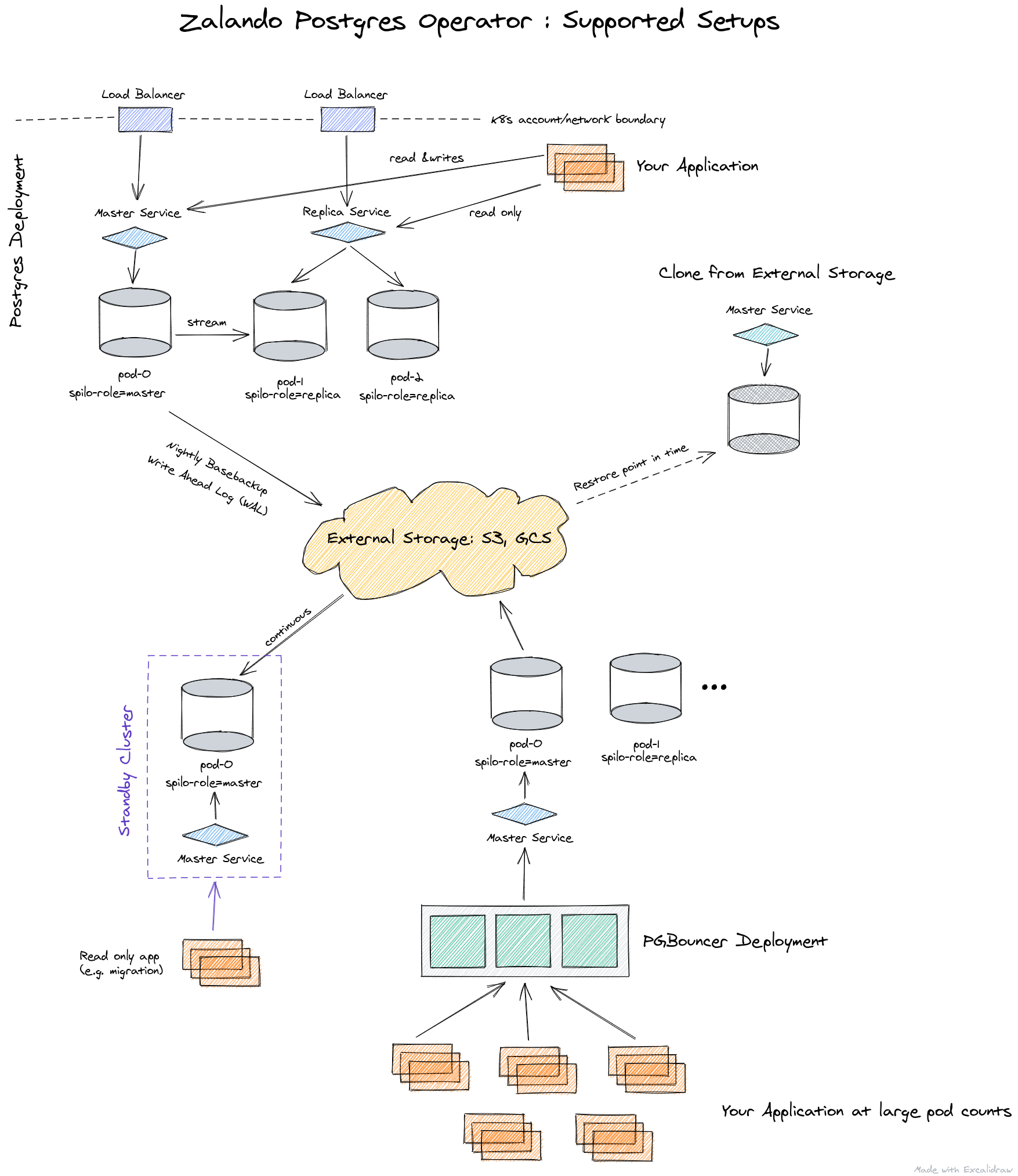* set search_path for default roles * deployment back to 1.5.0 Co-authored-by: Felix Kunde <felix.kunde@zalando.de> |
||
|---|---|---|
| charts | ||
| cmd | ||
| docker | ||
| docs | ||
| e2e | ||
| hack | ||
| kubectl-pg | ||
| manifests | ||
| pkg | ||
| ui | ||
| .flake8 | ||
| .gitignore | ||
| .golangci.yml | ||
| .travis.yml | ||
| .zappr.yaml | ||
| CODEOWNERS | ||
| CONTRIBUTING.md | ||
| LICENSE | ||
| MAINTAINERS | ||
| Makefile | ||
| README.md | ||
| SECURITY.md | ||
| build-ci.sh | ||
| delivery.yaml | ||
| go.mod | ||
| go.sum | ||
| mkdocs.yml | ||
| run_operator_locally.sh | ||
README.md
Postgres Operator

The Postgres Operator delivers an easy to run highly-available PostgreSQL clusters on Kubernetes (K8s) powered by Patroni. It is configured only through Postgres manifests (CRDs) to ease integration into automated CI/CD pipelines with no access to Kubernetes API directly, promoting infrastructure as code vs manual operations.
Operator features
- Rolling updates on Postgres cluster changes, incl. quick minor version updates
- Live volume resize without pod restarts (AWS EBS, others pending)
- Database connection pooler with PGBouncer
- Restore and cloning Postgres clusters (incl. major version upgrade)
- Additionally logical backups to S3 bucket can be configured
- Standby cluster from S3 WAL archive
- Configurable for non-cloud environments
- Basic credential and user management on K8s, eases application deployments
- UI to create and edit Postgres cluster manifests
- Works well on Amazon AWS, Google Cloud, OpenShift and locally on Kind
PostgreSQL features
- Supports PostgreSQL 12, starting from 9.6+
- Streaming replication cluster via Patroni
- Point-In-Time-Recovery with pg_basebackup / WAL-E via Spilo
- Preload libraries: bg_mon, pg_stat_statements, pgextwlist, pg_auth_mon
- Incl. popular Postgres extensions such as decoderbufs, hypopg, pg_cron, pg_partman, pg_stat_kcache, pgq, plpgsql_check, postgis, set_user and timescaledb
The Postgres Operator has been developed at Zalando and is being used in production for over two years.
Getting started
For a quick first impression follow the instructions of this tutorial.
Supported setups of Postgres and Applications
Documentation
There is a browser-friendly version of this documentation at postgres-operator.readthedocs.io
- How it works
- Installation
- The Postgres experience on K8s
- The Postgres Operator UI
- DBA options - from RBAC to backup
- Build, debug and extend the operator
- Configuration options
- Postgres manifest reference
- Command-line options and environment variables
Google Summer of Code
The Postgres Operator made it to the Google Summer of Code 2019! Check our ideas and start discussions in the issue tracker.
Community
There are two places to get in touch with the community:
- The GitHub issue tracker
- The #postgres-operator slack channel
